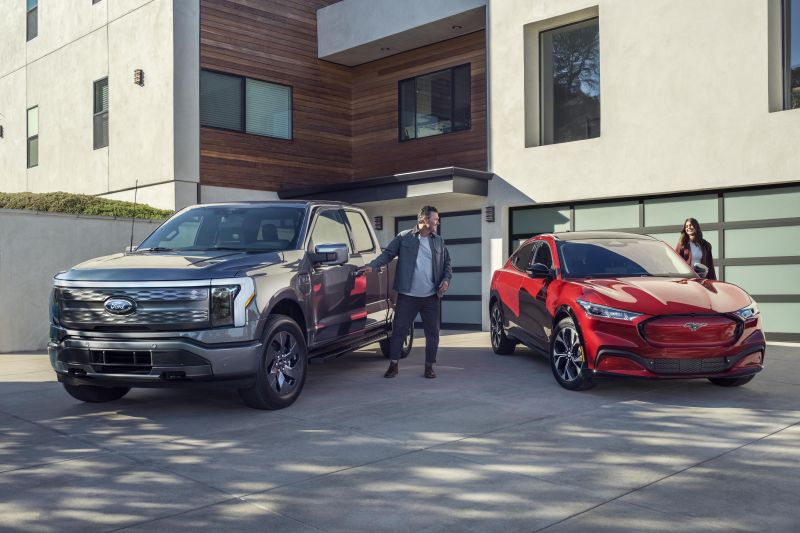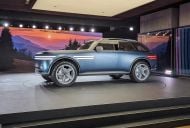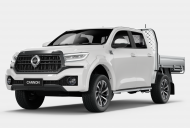US car giant Ford has announced myriad changes to its electric vehicle (EV) plans overnight, including the delay or cancellation of new models in favour of more hybrids.
However, it also provided the launch date of what could be an electric Ranger – even if it’s not yet calling it just that.
A dedicated ‘skunkworks’ team in California is currently developing a new EV platform which aims to be cheaper to produce – and more affordable for buyers – than its current electric models.
“The first affordable vehicle off this new platform will be a mid-sized electric pickup launching in 2027 that is expected to cater to customers who want more for their money – more range, more utility, more useability,” Ford said in a media statement.
100s of new car deals are available through CarExpert right now. Get the experts on your side and score a great deal. Browse now.
While we know the Ranger as a ute in Australia, it’s classified as a mid-size pickup in the US, sitting between the full-sized F-150 and the compact Escape SUV-based Maverick.
Ford is soon bringing an electrified Ranger to Australian showrooms, with a plug-in hybrid (EV) version of the dual-cab due in early 2025, capable of driving for a claimed 45km on battery power.
Along with the announcement of a Ranger-sized electric pickup, Ford said it’s delayed its F-150 Lightning successor to the second half of 2027, well behind its planned 2025 debut.
This will better allow Ford to capitalise on lower-cost battery technology “and take advantage of other cost breakthroughs while the market continues to develop”.
It has also axed plans to develop a three-row electric SUV, instead focusing on introducing more hybrid drivetrains in the segment.
In a bid to maximise EV incentives in the US and drive down costs for buyers, Ford is relocating its joint battery manufacturing project with LG Energy Solution – which supplies the Mustang Mach-E – from Poland to Michigan.
However, it won’t change its agreement with Chinese giant CATL, despite the partnership likely producing batteries in the future which will disqualify the EVs which they power from receiving incentives.
MORE: Everything Ford









